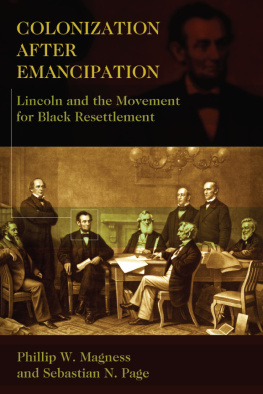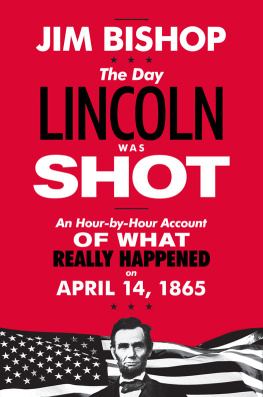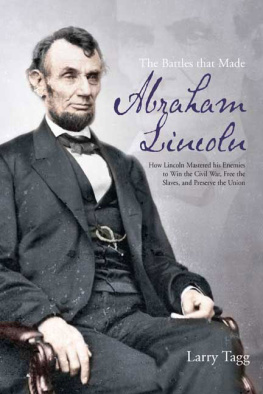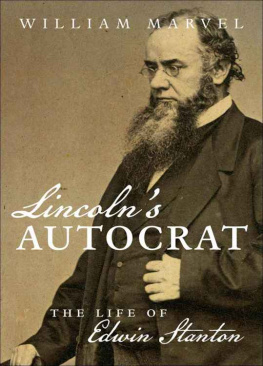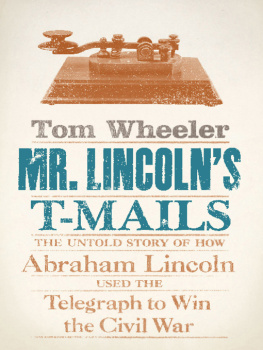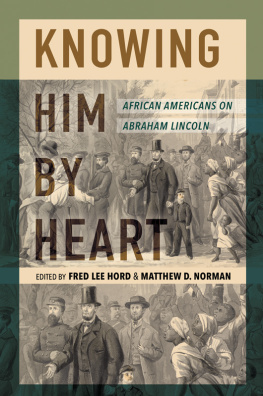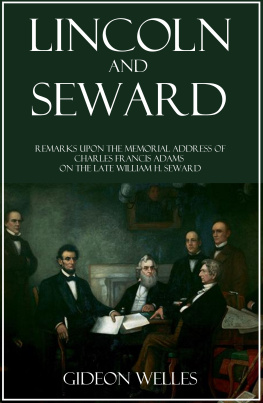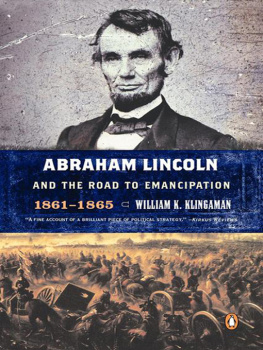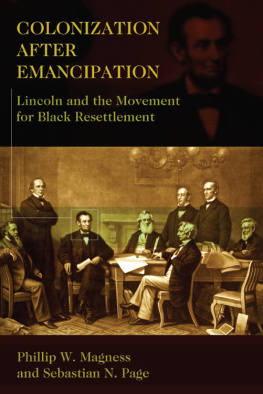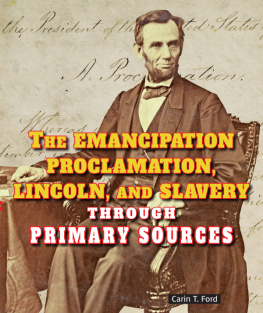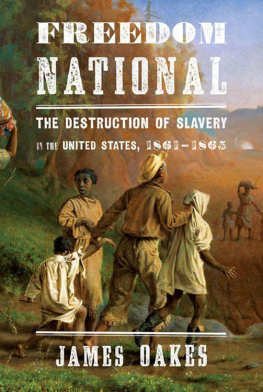This paper meets the requirements of the American National Standard for Permanence of Paper for Printed Library Materials, Z39.48, 1984.
Preface
As unlikely as it may seem in retrospect given the present study it produced, this inquiry began as a simple quest to locate an elusive document from Abraham Lincoln's presidency. On June 13, 1863, an agent bearing credentials from the British government sat with Lincoln for a highly secretive interview at the White House. Following a brief discussion of the agent's dealings with a member of the cabinet, the president handed his guest an order drafted by James Mitchell, the government's commissioner of emigration, and bearing Lincoln's own signature. The document outlined a proposal submitted by the agent, himself a representative of a large landholding corporation in the colony of British Honduras, or modern-day Belize. He sought to transport the newly emancipated slaves of the United States to a tract of his company's land. There they would be provided with acreage, dwellings, and tools to begin life anew as free agricultural laborers under the supervision of the British government.
Then the British agent apparently marched off into history, authorization in hand, leaving few indications that he ever acted on its provisions. The American records contained only a second-generation secretary's copy of the paper, neatly tucked away into an obscure file at the Department of the Interior unseen by most historians. This document sparked a corollary discussion of the West Indies scheme in a 2008 article about Lincoln's colonization policies by one of the authors. Still, its own story lingered in mystery and prompted a subsequent search for the original in Lincoln's pen.
This quest led us to the United Kingdom by way of historical dispatches from the British Legation in Washington, D.C., where the agent from Belize filed a report of his business. A succession of document discoveries in the British and American National Archives revealed that the 1863 meeting was part of a much larger colonization project, unknown to this day, wherein the American and British governments sought to populate the West Indies with ex-slaves from the United States. Equally startling, this project occurred in the latter years of Lincoln's presidency when it is commonly believed thathe moved away from colonization in favor of his better-known policies to secure the rights and futures of the freedmen in the United States. In short, this elusive document provided both an opportunity to write an unexplored chapter of Lincoln's presidency and an occasion to reexamine the role that colonization played in his efforts to eradicate slavery and his Emancipation Proclamation of January 1, 1863.
The project itself presented a tough shell to crack. Its participants, including Lincoln, left a meager trail of evidence, incomplete from any single holding and scattered across both sides of the Atlantic. The pursuit took us through the interdepartmental memoranda of the British Foreign and Colonial Offices and the American consular records of Belize and Demerara, British Guiana. It led us to the Library of Congress, where a smudged date further obscured our search by way of a misfiled document hiding in plain sight amidst the well known and widely researched Abraham Lincoln manuscript section. We chased the program's American administrator, James Mitchell, to his postwar career as an educator in rural Carroll County, Georgia. Utilizing an extensive assemblage of letters, pamphlets, and newspaper articles, we reconstructed the course of a previously unknown fact-finding mission in which a group of African American abolitionists traveled to Central America to investigate the proposed colony site on behalf of the U.S. Emigration Office.
Ironically, we were unable to accomplish the initial goal of locating the original June 13, 1863, order in Lincoln's handwriting. Though we located a first-generation copy that was filed at the British Legation, the original's whereabouts remain unknown. It was apparently carried off to Belize by its recipient, whereas the primary American copy disappeared into the lost files of the Emigration Office, last seen in Mitchell's possession shortly before his death in 1903. The search bore many other fruits though, primary among them the untold story of Lincoln's last major attempt to colonize the freed slaves abroad.
The remainder of this work provides an account of the Belize project and related efforts to find a home for the freedmen in the Caribbean and Central America. Without exposing the reader to a premature revelation of this story, it is appropriate to attempt an answer at one question it naturally provokes, to wit: why has the attempted colonization of the West Indies with freed slaves from the United States escaped almost all historical attention?
We find no simple answer to this question, except to say that it is a product of events surrounding the scheme's design, attempted implementation, and eventual collapse. Most preparations, including Lincoln's own involvement, occurred well out of the public spotlight and are known to us only through the occasional decision of other involved parties to record them in writing.
The degraded condition of the Emigration Office records was a primary obstacle and bears note. This agency, tasked with administering the American components of the project, also became a cause of its demise when a rancorous bureaucratic fight erupted over the control of its budget. The feud took its toll on the project's records as its principal agents repeatedly relocated their files, intentionally withheld key documents from one another, and dueled for control over tasks related to their administration. Untold dozens of relevant papers disappeared with the fight's primary participants, Mitchell and Interior Secretary John P. Usher. Mitchell undoubtedly carried many away as he moved his files beyond Usher's reach in 1864 and likely retained them in his extensive personal library until his death. Most of these potentially valuable files dispersed among his heirs, their present whereabouts unknown.
We set out to reconstruct the Emigration Office records by using the somewhat chaotic files that survived in the Interior Department's possession as a starting point. From there we identified other records through copies in the British Foreign and Colonial Offices, and through references in surviving letters and contracts. A combination of congressional records, period newspaper reports, and later reminiscences allowed us a glimpse at many of the Emigration Office's otherwise unrecorded activities, including a little-known investigative expedition that it sent to a proposed colony site in August 1863.
The British records provided additional challenges. The project involved two distinct offices of the Palmerston government with policy priorities that did not always coincide. Though the project generated no numerical shortage of records at the British end, they arrived with the inconsistency one might expect from a remote colonial outpost on the empire's frontier. London's negotiations with Washington produced hundreds of pages about the scheme, though its eventual abandonment by the Colonial Office left only a few scant notes in obscure colonial files. In a few instances, only informed conjecture suffices to explain a sudden turn of events by taking notice of its subsequent results.

